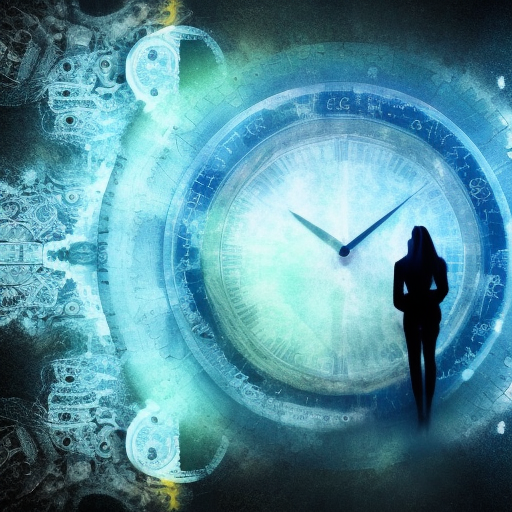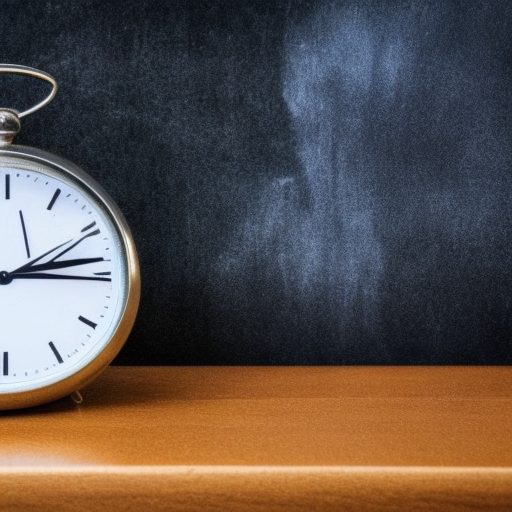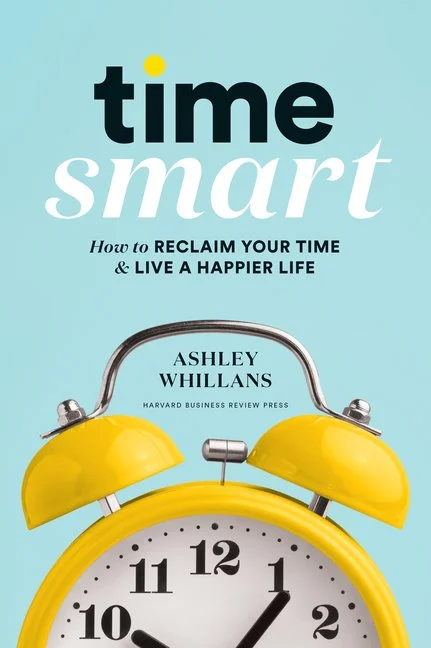What’s your relationship with time?
Over the last year, my observation of time has see-sawed between looking at life through the eyes of my 91-year-old mother and my 19-month-old granddaughter. My mother spends time reliving memories. My granddaughter (not yet old enough to understand past, present, and future) knows two times: now and not now. I linger when I’m with her watching as she discovers the world around her, memories building. And I relish listening to Mom retell stories from decades ago, knowing she won’t always be around.
As a constant companion, time slips by unnoticed while we are living. Time is the lifeblood of our breath. Marked by the milliseconds ticking away on some master clock toward the total number of minutes our hearts beat. We love and are loved. We’re happy and sad. Excited and lonely. Time is an illusion agreed to by a civilized society for how to keep us in sync. We can be passive to moments passing. We can complain we don’t have enough and didn’t get XYZ done, but where were we spending our precious minutes instead?
Seems it’s appropriate for me to recalibrate my relationship with time. The new year a perfect opportunity for a reset.
What is time? Why are we so obsessed with it? And how can we stop feeling crushed by time and be more conscious of our choices?
what is time?
Did you know that here in America there is a laboratory in Colorado housing three high-precision atomic clocks named: George, Fiona, and Elvis? They are part of a 21-clock ensemble that the National Institute of Standards and Technology (NIST) uses to generate official time. They use hydrogen atoms, like a tuning fork. NIST has created a system to count time within one quadrillionth of a second.
In another room, the timing signals blast across the US. They sync our computer networks and cellphone towers to all our personal gadgets. Tick tock. Governments around the world want to keep everything moving for commerce. Hence the Department of Commerce funds NIST.
Poets think of time as a river, freely flowing from birth through life and into death. Scientists refer to time as the fourth dimension. Stephen Hawking, a theoretical physicist, agrees time is like a river, but with an added kick. "Time flows like a river and it seems as if we're carried relentlessly along by time's current. But time is like a river in another way. It flows at different speeds in different places, and that is the key to traveling into the future.”
Einstein proposed the possibility of time travel 100 years ago. There should be places where time slows and other places time speeds up. Hawking sites the Global Position System satellite network, where time runs faster in space than here on earth.
Hawking uses the example of driving a car to explain. Forward is one direction or one dimension. Left or right is another direction adding a second dimension. Up a mountain adds a third dimension. And traveling through time adds a fourth dimension.
For a simple non-sci-fi thought experiment imagine yourself where you are right now, in the present moment reading this newsletter. Take a break to close your eyes and remember a fond memory. As you replay that mini-movie in your mind you’re traveling into the past. Now shift gears and think of something you’re planning to do this next weekend. Both exercises are a way to mentally time travel.
"Time flows like a river and it seems as if each of us is carried relentlessly along by time's current.”
— Stephen Hawking
I watched the movie Mr. Nobody earlier this week. A 118-year-old man is being watched on giant screens throughout the world live. He's the last human who would die a mortal death. He has sessions with a Mad Max tattooed-faced psychologist who meets weekly to try to get him to remember who he is. Plus, a journalist sneaks into the hospital to ask him what it was like in a world where everyone was mortal.
Each of the sessions with the psychiatrist and journalist triggered different memories. The most painful, back to the age of 9 when Nemo Nobody has to pick which parent to go with after their divorce. He can't and as long as he doesn't choose, anything’s possible.
We go on a roller-coaster ride through time and Nemo’s possible choices. There are three 9-year-old girls Nemo ends up marrying and time swirls between ages 9, 15, 34, and 118 throughout the movie.
In the end, after seeing all the choices played out Nemo knows which relationship he wants. And when his prediction of living until the universe starts contracting comes true. We watch the backward momentum of time. The planets change direction and smoke goes back into cigarettes. Time swirls in the movie back to a choice he didn’t realize he wanted until he played out all the scenarios. You definitely experience the fourth dimension in a creative way.
Often in my rush to get things done, I jump to an early conclusion or scenario. But if I take Colum McMann’s advice to “embrace the ambiguity of the unanswered question,” and be open to a solution presenting itself I’m pleasantly surprised. Instead of being in such a hurry to check-off items on my to-do list, I’ll let a question simmer before determining a course of action in a more deliberate way. The goal is to find a good solution, it’s not always to find a fast solution. Time is flexible.
Mr. Nobody written & directed by Jaco Van Dormaei
A young boy stands on a station platform. The train is about to leave. Should he go with his mother or stay with his father? An infinity of possibilities rise from this decision. As long as he doesn't choose, anything is possible. Every life deserves to be lived.
“Most of us grew up being fed the idea of time as absolute,” says Chanda Prescod-Weinstein, a theoretical physicist at the University of New Hampshire. She describes time as a social construct. As technology gets more sophisticated, time itself may need to start changing.
When I research topics like quantum physics that blow apart what I learned in school, I remind myself there was a period when we thought the earth was flat. Accepting the earth was round took many centuries. Same with learning the sun was the center of the universe versus earth. More centuries.
I’ll suffice it to say that I accept the universe is expanding from the Big Bang, and the expansion is stretching time. Blows my mind. But I’m taking science’s lead. There’s so much we do not know, who am I, who are we, to say space-time isn’t a thing?
why are we so obsessed with time?
What’s my relationship with time? Tick-tock. Moments passing. Relationship implies a personal kinship or aloofness or a relation to. How do I relate to time? I keep track of the days by journaling daily, a ritual habit to start the morning dancing with my subconscious.
I used to write more about the plots of my life (and subplots) as a record. Now it's more of a conversation with my subconscious to let the threads of sleep stretch their legs into the day. I’m more curious about how I move around in time knowing my subconscious calls many of the shots.
My relationship with time still involves heavy calendar tracking activities. Both for commitments to myself to carve out intervals for exercising, writing, meditating, cooking healthy vegan meals, time with family and friends, and various appointments.
Time is our constant companion, an invisible tally of our life’s breaths passing. Memory slips through time, time slices, in a quick cameo appearance at the ready from the archives. A loved one died recently. I imagined their final hours on earth and remembered the fun moments when we were together.
Memory wakes up when people die. Time is fluid.
Time swirls. There's past time — our memories and nighttime dreams. There's present time — being mindful, knowing our brains edit sensory inputs coming into our brains to sync up. Ironically, even our sense of "present" is milliseconds are nanoseconds in the past. And then there’s future time — where anything is possible and we scenario plan and hatch ideas.
Growing up we are trained to "do" things based on time. Breakfast, get ready for school/work, school/work, socialize, eat, homework/projects, eat, sleep. Body maintenance. House maintenance. Relationship nurturing.
Time runs alongside us. We don't communicate with time. We acknowledge its passing but don't negotiate for more of the precious commodity. Like, give me five more minutes in the day to sneak in granddaughter snuggles. Time smiles — use your 24 hours as you like.
But why are we so obsessed with it? Scarcity? Or the perception of scarcity?
What do we consider a waste of time? When we watch something or have an interaction that sucks our energy and say, “I’ll never get that time back.” As if it's a commodity you can exchange or return.
Our televisions pause for minutes before shutting off. Our computers pause for a preset interval and trigger screen savers before shutting down into quiet mode to save battery life. They hibernate until we wake them up. Same with our phones. Saving energy the goal. We can learn from technology to do the same thing and take a break from being so obsessed with getting things done.
Fun Facts About Time 28 Fascinating Facts About Time
There are 31,556,926 seconds in a year.
The original Roman calendar is believed to have been invented by Romulus, the first king of Rome, around 753 BCE, and was based on phases of the moon.
The “Planck time” is the smallest unit of time accepted by science.
Rather than viewing time as a set order, he proved that it’s actually relative. For example, according to Einstein’s theory of special relativity, there’s an inverse relationship between your speed and the speed of time. The faster you move, the slower time moves.
Julius Caesar created the leap year in 46 BC.
Until the 19th century, towns and villages synchronized their clocks to the local solar noon. This created thousands of local times. On November 18, 1883, railroad companies in the US & Canada began using a system very similar to the standardized time zones we still use today. In the UK, the railroad companies began using a standard London-based time in 1840.
By the time you turn 70, your heart will have beat 2.5 billion times. On average, the heart pumps 377 litres of blood around your body every 60 seconds, and beats more than 100,000 times per day.
The study of time in science is called horology.
how can we stop feeling so crushed for time and be more conscious of our choices?
We’ve all been taught time is money whether we acknowledge it or not. Decisions are made for future plans valuing the perceived security of money over our time. Often without an active acknowledgment of the trade-offs.
In the mid-90s I remember a conversation I had with my boss about my latest raise. Business had been good. Bonuses were plentiful. I was in an enviable position, not having to worry about money. But what I wanted was more time. I asked for more time off instead of my raise. After a long pause, my boss said That’s not the way it works. Money is the way we keep score.
Dr. Ashley Whillans, a behavioral scientist and assistant professor at Harvard Business School, promotes dispensing of the idea that “time is money” because time is so much more than that.
“Time is the most valuable resource, something that is finite and uncertain — is this pursuit of money, and the societal focus on having more money and productivity as a means by which to measure the value of our lives?”
— Ashley Whillans
Whillans and her colleagues’ data show that focusing on money is a path to unhappiness as opposed to satisfaction. Those in control of their schedule, who feel time-affluent report greater happiness. And according to Whillan’s research, people think they’ll have more time in the future than they do in the present.
Time is not money, but happiness.
Whillans advice:
Think about how you can incorporate more time for better social relationships, fitness, hobbies, or volunteering.
Try to make small changes around the margins of your schedule to start.
Time Smart: How to Reclaim Your Time and Live a Happier Life
by Ashley Whillians
Time Smart is your playbook for taking back the time you lose to mindless tasks and unfulfilling chores. Author and Harvard Business School professor Ashley Whillans will give you proven strategies for improving your "time affluence." The techniques Whillans provides will free up seconds, minutes, and hours that, over the long term, become weeks and months that you can reinvest in positive, healthy activities.
At the end of last year, I saw a post by Makida Bey Ph.D., a new connection on LinkedIn. She recommended 7 must-watch TedTalks to get a handle on how we manage our time (a bit counterintuitive because she's trying to promote balance and most people are stretched right before the holiday). I picked two.
Sara Cameron’s How to turn busy into balance TEDxTemecula
When I listened to Sara Cameron’s How to turn busy into balance she described the importance of creating moments for white space in your schedule. Blank, unplanned, unscheduled minutes. A break from the back-to-back unrelenting to-do list items we seem to be addicted to. I know it’s hard to keep busyness at bay - it’s often worn as a badge of honor to be so needed, to feel so important (and privately burnt out).
But we can try to add inbetween time – scheduling in moments to take a break and do nothing and just be. Take a pause. Not only will it let us recharge our batteries, it lets our brains absorb everything we’ve experienced that day. Without reflection periods, we hurry along to the next thing and miss out on what we might have learned.
In Laura Vanderkam’s How to gain control of your free time, she encourages us to look at time as a choice. There are 24 hours in a day, 168 hours in each week. According to Vanderkam, a time management expert who studies how busy people spend their time, we all have choices over how we spend our precious minutes.
Her research shows many of us drastically overestimate our commitments each week. And we underestimate how long things will take. The secret is to know what matters most and prioritize that first.
Recently I joked about how my style for focusing on my top priority is to get everything else done first so I have a “clean slate,” no more interruptions. Problem is, by the time I “get everything else done and out of the way” it’s mid-afternoon. My mental energy dissipated with a promise to myself to do better tomorrow.
For this year, I’m recalibrating my relationship with time to let the fact that time is a choice seep into my routine. And to leave room for more white space in my life.
I’ll still relish the moments with my mother and granddaughter. Only now with more white space afterward to appreciate both the fresh eyes of a new little person experiencing life for the first time and the eyes of a nonagenarian who has so much life experience to share.
How do you move through time?
Please leave a comment below and if you enjoyed this post, I invite you to subscribe to my thought echoes newsletter.






